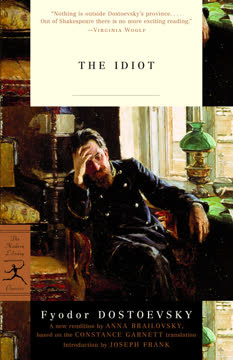Plot Summary
Encounter on Prague Hill
Hermann Karlovich, a Russian émigré and chocolate businessman in Berlin, finds himself in Prague on a business trip. Restless and introspective, he wanders through the city and stumbles upon a tramp sleeping under a bush. To his shock, the man—Felix—bears an uncanny resemblance to himself. This encounter is not merely a curiosity for Hermann; it is a revelation, a moment that seems to fulfill a deep, unarticulated longing for a reflection, a double, a living mirror. The meeting is charged with Nabokov's signature playfulness and self-consciousness, as Hermann's narration blurs the line between reality and invention. The double, Felix, is oblivious to the significance of their resemblance, but Hermann is immediately obsessed, sensing the potential for something extraordinary, even as he is repulsed by Felix's poverty and coarseness. This pivotal moment sets the stage for Hermann's descent into a labyrinth of self-deception, artistic ambition, and criminal intent.
The Art of Lying
Hermann introduces himself as a master of invention, both in life and on the page. He confesses to a lifelong habit of lying, embellishing, and manipulating reality, not out of malice but as an aesthetic exercise. His marriage to Lydia, a simple and forgetful woman, is painted with both affection and condescension. Hermann's self-image is that of a misunderstood artist, a man whose creative faculties are wasted on the mundane world of chocolate sales. The narrative is laced with digressions, jokes, and self-referential asides, establishing Hermann as an unreliable narrator whose version of events is always suspect. The theme of mirrors and reflections recurs, as Hermann's fascination with his own image—and now with Felix—becomes a metaphor for his fractured identity and growing alienation from reality.
The Double's Discovery
Back in Berlin, Hermann cannot shake the memory of Felix. He muses on the nature of doubles, the uncanny thrill of encountering one's own likeness in the flesh. The resemblance is not just physical but existential; Felix becomes a vessel for Hermann's fantasies of escape, reinvention, and artistic creation. Hermann's marriage and business falter, and he becomes increasingly preoccupied with the idea of using Felix for some grand, undefined purpose. The double is both a threat and a promise—a chance to transcend the limitations of his own life, or perhaps to obliterate himself entirely. The chapter explores the psychological underpinnings of doppelgänger myths, filtered through Hermann's egotism and Nabokov's irony.
Chocolate, Mirrors, and Marriage
Hermann's home life is depicted in detail, with Lydia's quirks and the couple's routines providing a backdrop to his growing estrangement. He describes episodes of dissociation, where he imagines himself split in two, observing his own actions from a distance. The motif of mirrors returns, symbolizing both self-knowledge and self-delusion. Hermann's business troubles mount, and his sense of reality becomes increasingly unstable. The chapter is rich in Nabokovian wordplay and psychological insight, as Hermann's inner world becomes more vivid—and more dangerous—than the external one.
The Plot Hatches
Hermann's obsession with Felix crystallizes into a plan: he will use his double to stage his own death and collect the insurance money. The idea is presented as both a work of art and a perfect crime, a way to outwit the world and assert his creative genius. Hermann contacts Felix under the pretense of offering him work as a film understudy, exploiting the tramp's desperation and simplicity. The narrative is suffused with dark humor and self-congratulation, as Hermann revels in the cleverness of his scheme, convinced of his own superiority to both Felix and the society he intends to deceive.
Felix: The Living Reflection
Felix, for his part, is slow-witted, practical, and suspicious of Hermann's motives. Their interactions are marked by misunderstandings, class differences, and a fundamental asymmetry of power. Hermann manipulates Felix with promises of money and adventure, but Felix remains uneasy, sensing that something is amiss. The chapter explores the ethical and psychological dimensions of their relationship, with Felix serving as both victim and unwitting accomplice. Hermann's narrative becomes increasingly unreliable, as he projects his own desires and fears onto Felix, blurring the line between self and other.
The Understudy's Bargain
After much persuasion, Hermann convinces Felix to participate in a mysterious "job" that involves impersonating him. The terms are vague, but the promise of easy money is enough to secure Felix's reluctant cooperation. Hermann's manipulation is both psychological and material, as he provides Felix with clothes, money, and a script to follow. The chapter is a study in power dynamics, with Hermann's self-delusion and Felix's vulnerability on full display. The stage is set for the execution of the "perfect crime," even as cracks begin to appear in Hermann's plan.
The Perfect Crime Designed
Hermann meticulously prepares every detail of the scheme, from the timing and location to the alibis and props. He rehearses the narrative he will present to the authorities, his wife, and himself. The crime is conceived as a work of art, an assertion of individuality against the mediocrity of the world. Hermann's self-justification is relentless; he sees himself as a misunderstood genius, a victim of society's failure to recognize his brilliance. The chapter is a tour de force of Nabokovian irony, as the reader is invited to admire the ingenuity of the plan while also seeing its fundamental absurdity and moral bankruptcy.
Lydia's Lesson in Grief
Hermann instructs Lydia in how to behave after his "death," drilling her on the details she must remember and the emotions she must display. Lydia is bewildered and frightened, unable to grasp the full implications of the plot. Her innocence and devotion are contrasted with Hermann's cold calculation. The chapter is both comic and tragic, as Lydia's confusion becomes a mirror for the reader's own uncertainty about what is real and what is performance. Hermann's control over his wife is as complete as his control over Felix, but it is also fragile, dependent on her trust and his own ability to maintain the illusion.
The Murder in the Woods
On a wintry day, Hermann lures Felix into a remote forest under the pretense of preparing him for the role. He shaves Felix, dresses him in his own clothes, and gives him final instructions. In a moment of cold efficiency, Hermann shoots Felix in the back, arranging the scene to suggest that the body is his own. The act is described with a mixture of detachment and aesthetic appreciation, as if it were the culmination of an artistic project rather than a brutal murder. Hermann flees the scene, confident that his plan is foolproof and that he will soon be free to start a new life.
The Aftermath and Escape
Hermann escapes across the border, adopting Felix's identity and waiting for news of the crime's success. He imagines the world's admiration for his ingenuity, the insurance payout, and a new life with Lydia. However, cracks begin to appear in his confidence. The newspapers report the crime in a tone of ridicule and suspicion, dismissing the idea that the body could be mistaken for Hermann's. The authorities are not fooled, and the world refuses to play its assigned role in Hermann's drama. The chapter is a study in anticlimax, as the "perfect crime" unravels in the face of reality's indifference.
The Artist's Disappointment
Hermann is devastated by the world's failure to appreciate his masterpiece. The police and press see through his scheme, focusing on trivial discrepancies and dismissing the central miracle of the double. Hermann's sense of artistic pride is wounded; he feels misunderstood, persecuted, and alone. The chapter is a meditation on the nature of art, crime, and recognition, as Hermann's self-image as a genius collapses under the weight of public scorn and his own mounting doubts.
The World Refuses the Masterpiece
As the investigation closes in, Hermann's narrative becomes increasingly desperate and fragmented. He is haunted by the memory of Felix's submission, the physical details of the crime, and the world's refusal to acknowledge his achievement. Letters from Lydia and Ardalion, his wife's cousin, reveal the human cost of his actions and the utter failure of his plan. Hermann's isolation is complete; he is a fugitive, a pariah, and a failed artist. The chapter is suffused with irony and pathos, as the gap between Hermann's self-conception and reality becomes unbridgeable.
The Letter and the Stick
In a moment of horrifying clarity, Hermann realizes that he has made a crucial mistake: Felix's stick, branded with his real name, was left in the car and discovered by the police. This oversight destroys the entire edifice of the "perfect crime," exposing Hermann's fallibility and sealing his fate. The revelation is both comic and tragic, a final twist of Nabokovian irony that reduces Hermann's grand design to a farce. The stick becomes a symbol of the limits of art, the inevitability of error, and the futility of seeking absolute control over reality.
Collapse in Exile
Hermann flees to a remote village in France, pursued by the authorities and tormented by his own thoughts. His narrative degenerates into a diary, marked by paranoia, self-pity, and a sense of impending doom. The villagers watch him with suspicion, and the local gendarme becomes a comic echo of Felix. Hermann's sense of identity dissolves; he is no longer sure who he is, or whether any of it was real. The chapter is a portrait of psychological collapse, as the boundaries between self and other, art and life, crime and confession, blur into nothingness.
The Crowd Gathers
As the police close in, Hermann imagines himself as the star of a film, directing the crowd in his own arrest. The narrative becomes self-referential and theatrical, with Hermann addressing the reader directly and rehearsing his final speech. The crowd outside his window is both real and imaginary, a symbol of the world's judgment and the artist's longing for an audience. The chapter is a meditation on performance, recognition, and the ultimate futility of seeking meaning in a world that refuses to play along.
Despair's Final Curtain
In the end, Hermann is left alone, cold, and defeated, awaiting arrest or execution. His masterpiece has failed, his identity is in ruins, and the world remains indifferent to his suffering and his art. The novel closes on a note of bitter irony and existential despair, as Hermann contemplates the absurdity of his actions and the impossibility of ever being truly understood. The final curtain falls not on a triumphant escape or a perfect crime, but on the recognition that all art, all identity, and all meaning are ultimately provisional, fragile, and subject to the indifferent gaze of the world.
Characters
Hermann Karlovich
Hermann is the novel's narrator and antihero, a Russian émigré in Berlin who fancies himself a misunderstood genius. His psychological makeup is defined by narcissism, alienation, and a compulsive need to manipulate reality through lies, art, and ultimately crime. Hermann's relationship to others is marked by condescension and exploitation—he sees his wife Lydia as a simpleton, Felix as raw material for his masterpiece, and the world as an audience that fails to appreciate his brilliance. His descent into criminality is driven less by greed than by a desire for artistic recognition and existential escape. Hermann's narrative is unreliable, self-justifying, and laced with irony, revealing a mind at war with itself and with the world. His development is a spiral from self-assured schemer to desperate fugitive, culminating in despair and self-annihilation.
Felix
Felix is Hermann's physical double, a down-and-out tramp whose resemblance to the protagonist becomes the catalyst for the novel's central crime. Psychologically, Felix is simple, practical, and somewhat obtuse, lacking the self-awareness and ambition that drive Hermann. He is both a mirror and a foil, embodying the possibility of another life and the reality of suffering and vulnerability. Felix's passivity and trust make him easy prey for Hermann's manipulations, but his very ordinariness also undermines Hermann's grandiose plans. In death, Felix becomes the ultimate victim of Hermann's artistic and existential project, a blank canvas onto which the protagonist projects his fantasies and failures.
Lydia
Lydia is Hermann's wife, a woman characterized by her simplicity, forgetfulness, and unquestioning devotion. She is both a source of comfort and a target of Hermann's contempt, her innocence serving as a foil to his cunning. Lydia's psychological depth is limited by the narrative's focus on Hermann's perspective, but her reactions to the unfolding plot—her confusion, fear, and eventual grief—provide a human counterpoint to Hermann's cold calculation. Her role in the scheme is passive, yet her suffering and bewilderment highlight the collateral damage of Hermann's self-absorption.
Ardalion
Ardalion, Lydia's cousin, is a struggling painter whose presence in the narrative serves as both comic relief and a subtle commentary on art and authenticity. He is cheerful, opportunistic, and somewhat parasitic, relying on the generosity of others while pursuing his own artistic ambitions. Ardalion's relationship with Hermann is marked by mutual disdain and rivalry, with Ardalion's mediocrity serving as a contrast to Hermann's delusions of grandeur. His later letter condemning Hermann provides an external judgment on the protagonist's actions, underscoring the novel's themes of recognition and failure.
Orlovius
Orlovius is a lawyer and family acquaintance, representing the voice of conventional morality and bourgeois respectability. He is earnest, well-meaning, and easily manipulated by Hermann, serving as a witness to the protagonist's supposed marital woes and as a potential executor of the insurance scheme. Orlovius's psychological simplicity and susceptibility to suggestion make him both a tool and a symbol of the society that Hermann seeks to outwit—and that ultimately refuses to recognize his "masterpiece."
The Maid (Elsie)
Elsie, the household maid, is a minor character whose innocence and obliviousness provide occasional comic moments and serve as a contrast to the machinations of her employers. Her role in the plot is limited, but her reactions to the appearance of Felix and the unfolding events highlight the strangeness and artificiality of Hermann's scheme.
The Doctor (in exile)
The doctor at the French hotel where Hermann hides out is a figure of bourgeois normalcy and social ritual. His attempts to befriend Hermann, his gossip, and his obliviousness to the protagonist's true identity provide a backdrop of everyday life against which Hermann's isolation and paranoia are heightened. The doctor's presence underscores the theme of the world's indifference to the artist's suffering.
The Gendarme
The local gendarme in the final chapters is a comic figure, representing the law and the inevitability of justice. His interactions with Hermann are marked by politeness, ignorance, and a kind of bumbling efficiency. The gendarme's presence signals the end of Hermann's illusions of control and the approach of the final reckoning.
The Crowd
The crowd that gathers outside Hermann's window in the final chapter is both real and symbolic, representing the world's collective gaze, judgment, and refusal to participate in the protagonist's drama. The crowd is faceless, indifferent, and implacable, a reminder of the limits of individual agency and the futility of seeking recognition from an uncomprehending world.
The Press and Police
The journalists and police who investigate the crime serve as the voice of external reality, puncturing Hermann's fantasies and exposing the flaws in his plan. Their skepticism, ridicule, and focus on trivial details highlight the gap between Hermann's self-conception and the world's perception, driving home the novel's central themes of misrecognition, failure, and despair.
Plot Devices
Doppelgänger Motif
The central plot device is the doppelgänger, a figure that embodies both the promise of escape and the threat of annihilation. Felix's resemblance to Hermann is the catalyst for the entire plot, serving as a literal and metaphorical mirror in which the protagonist confronts his own identity, desires, and limitations. The double is both a tool for Hermann's scheme and a symbol of the impossibility of true self-knowledge or self-transcendence.
Unreliable Narration
Hermann's first-person narration is marked by digressions, contradictions, and self-justification, creating a sense of unreliability that permeates the novel. The reader is constantly invited to question the truth of Hermann's account, to see through his lies and rationalizations, and to recognize the gap between his self-image and reality. This device heightens the psychological complexity of the novel and underscores its themes of illusion, performance, and despair.
Metafictional Self-Reference
Nabokov employs metafictional techniques throughout the novel, with Hermann frequently commenting on the act of writing, the conventions of literature, and the relationship between art and life. The crime itself is conceived as a work of art, and the narrative becomes a kind of confession, justification, and plea for recognition. This self-referentiality blurs the boundaries between fiction and reality, implicating the reader in Hermann's delusions and failures.
Irony and Parody
Despair is suffused with irony, parodying the conventions of crime fiction, psychological novels, and existentialist literature. Hermann's "perfect crime" is anything but perfect, and his self-conception as a genius is relentlessly undermined by the narrative. Nabokov's playful language, allusions, and structural tricks serve to distance the reader from the protagonist and to highlight the absurdity of his ambitions.
Foreshadowing and Symbolism
The novel is rich in foreshadowing and symbolic detail, from the recurring motif of mirrors and reflections to the fatal oversight of Felix's stick. These devices serve both to structure the narrative and to underscore its themes of identity, error, and the limits of control. The stick, in particular, becomes a symbol of the inevitability of failure and the impossibility of achieving perfect mastery over reality.
Analysis
Despair is a darkly comic meditation on identity, art, and the limits of self-invention. Through the unreliable, self-obsessed narration of Hermann, Nabokov explores the psychological and philosophical implications of the doppelgänger motif, exposing the dangers of narcissism, solipsism, and the desire for absolute control. The novel is both a parody of the crime genre and a profound inquiry into the nature of artistic creation, recognition, and failure. Hermann's "perfect crime" is revealed as a delusion, his masterpiece as a farce, and his quest for meaning as a descent into despair. In a modern context, Despair anticipates postmodern concerns with authorship, narrative, and the construction of self, while also offering a cautionary tale about the perils of self-deception and the impossibility of escaping the gaze of the world. Nabokov's wit, irony, and linguistic virtuosity make the novel both a dazzling literary performance and a chilling portrait of the artist as a criminal and a fool.
Last updated:
FAQ
Synopsis & Basic Details
What is Despair about?
- A Businessman's Uncanny Discovery: Despair introduces Hermann Karlovich, a Russian émigré and Berlin chocolate manufacturer, whose life takes an obsessive turn after a chance encounter in Prague. He discovers Felix, a vagrant who bears an astonishing, almost identical resemblance to himself.
- The Genesis of a "Perfect Crime": Driven by a narcissistic artistic impulse and mounting business failures, Hermann conceives an elaborate scheme to exploit this likeness. He plans to stage his own murder, using Felix's body as a substitute, to collect a substantial life insurance payout and escape his mundane existence.
- A Descent into Self-Delusion: The novel chronicles Hermann's meticulous, yet increasingly deluded, preparations for the crime, his manipulative interactions with Felix and his naive wife Lydia, and his eventual flight. It's a dark comedy of errors, narrated by Hermann himself, whose self-aggrandizing and unreliable account blurs the lines between reality, fantasy, and artistic creation.
Why should I read Despair?
- Masterclass in Unreliable Narration: Dive into the mind of Hermann Karlovich, a narrator who constantly questions his own narrative, lies, and manipulates the reader, offering a thrilling intellectual puzzle. This unreliable narration analysis is central to the book's charm.
- Nabokov's Signature Style: Experience Vladimir Nabokov's dazzling prose, rich with wordplay, intricate metaphors, and a unique blend of dark humor and profound psychological insight. It's a
Nabokov literary styleshowcase. - A Deep Dive into Identity and Art: Explore profound
themes in Despairsuch as the nature of identity, the artist's ego, the relationship between art and crime, and the ultimate futility of attempting to control reality through elaborate fictions.
What is the background of Despair?
- Émigré Life in 1930s Berlin: The novel is set against the backdrop of the Russian émigré community in
Berlin 1930s literature, reflecting the displacement and cultural anxieties of the era. Nabokov himself was an émigré, lending an authentic layer to Hermann's detached observations of German society. - Author's Early English Experiment: Despair (originally Otchayanie) was Nabokov's first serious attempt to translate his own Russian work into English, a process he later revised extensively. The foreword details his struggles and artistic choices, offering
Nabokov's writing processinsights. - Pre-War European Atmosphere: The narrative subtly captures the political and social undercurrents of pre-WWII Europe, with mentions of "Bolsheviks," "Lloyd George," and the general sense of unease, providing a
Despair historical contextthat colors Hermann's desire for escape.
What are the most memorable quotes in Despair?
- "I lied as a nightingale sings, ecstatically, self-obliviously; reveling in the new life-harmony which I was creating.": This quote, from Chapter Three, perfectly encapsulates Hermann's
Hermann Karlovich motivationsand his artistic justification for his compulsive dishonesty, framing his life as a continuous act of creative fabrication. - "There is no bliss on earth: there's peace and freedom, though.": A line from Pushkin's poem, quoted by Hermann in Chapter Four, becomes a recurring motif. It highlights Hermann's yearning for an idealized escape, contrasting his violent actions with a desire for tranquility, and is a key
Despair literary allusion. - "An artist feels no remorse, even when his work is not understood, not accepted.": Found in Chapter Ten, this declaration reveals Hermann's profound self-identification as an artist, even in the face of murder. It underscores his
art and crime themesand his unwavering belief in his own genius, regardless of external judgment.
What writing style, narrative choices, and literary techniques does Vladimir Nabokov use?
- Metafictional Self-Commentary: Nabokov employs extensive metafictional self-reference, with Hermann frequently breaking the fourth wall to address the "gentle reader," comment on his own writing process, and even critique literary conventions. This technique highlights the constructed nature of the narrative and Hermann's role as an author-figure.
- Intricate Wordplay and Linguistic Precision: The novel is a masterclass in
Nabokov's narrative techniques, showcasing his love for puns, alliterations, and precise, often ornate, descriptions. Hermann's narration is filled with linguistic flourishes, reflecting his belief in the power of words to shape reality, even as they betray his true state of mind. - Symbolism and Recurring Motifs: Nabokov weaves a rich tapestry of foreshadowing and symbolism, particularly through mirrors, reflections, and doubles, which serve as central metaphors for Hermann's fractured identity and his solipsistic worldview. Objects like Felix's stick and the yellow post also gain symbolic weight, subtly foreshadowing Hermann's ultimate downfall.
Hidden Details & Subtle Connections
What are some minor details that add significant meaning?
- The "Chock" Riddle's Ominous Foreshadowing: In Chapter Three, Hermann poses a riddle to Lydia: "Guess: my first is that sound, my second is an exclamation, my third will be prefixed to me when I'm no more; and my whole is my ruin." The answer, "Chock-oh-late," subtly links his business, his wife, and his ultimate
Despair plot analysisto his downfall, a detail Lydia, in her simplicity, fails to grasp. - Ardalion's "Pipe and Two Roses" Painting: In Chapter Six, Hermann searches for Ardalion's painting of a pipe and two roses, only to find peaches and an ashtray. This discrepancy, dismissed by Ardalion, hints at Hermann's unreliable narration tendencies, suggesting his memory or perception is already distorting reality, or that he's projecting his own artistic "vision" onto others' work.
- The "Cold White Little Dogs" Dream Motif: Hermann's recurring, unsettling dream of "cold white little dogs" (Chapter Five and Six) is a subtle
Despair symbolismfor his deep-seated anxieties and perhaps a premonition of the dehumanizing, cold nature of his crime, linking to his later rejection of a "hereafter" filled with "fiends in disguise."
What are some subtle foreshadowing and callbacks?
- The "Montibus of My Tale" Metaphor: Early in Chapter One, Hermann describes his story as a "mighty montibus" (mountain bus) he's afraid to board. Later, in Chapter Two, he declares, "I have now boarded that bus... and I have a comfortable window seat," subtly
Despair foreshadowing analysishis journey towards the crime and his initial confidence in its execution. - The Tiergarten Leaf and its "Lethal Reflection": In Chapter Four, Hermann observes a leaf falling into water, meeting its "exact, beautiful, lethal reflection." This vivid image directly
symbolism of mirrors in Despairforeshadows Felix's role as Hermann's "corpse" and the fatal outcome of their mirrored existence, a detail Hermann himself notes with chilling detachment. - The "Empty, Newly Whitewashed Room" Dream: Hermann's recurring dream in Chapter Three of a terrifyingly empty room, later filled by a chair and then a figure,
Hermann's psychological stateforeshadows his search for a "double" to fill the void in his own identity and his attempt to stage a new reality.
What are some unexpected character connections?
- Felix's "Musician" Passport Profession: In Chapter Nine, Hermann discovers Felix's passport lists his profession as "musician." This detail unexpectedly aligns with Hermann's own fabricated artistic aspirations (playing the violin in groves, Chapter Five) and the doctor's later assumption of Hermann's musical talent, creating an ironic
Felix and Hermann connectionthrough a shared, yet unearned, artistic identity. - The "Clever Lett" and Hermann's Madness: In Chapter One, Hermann recalls a "clever Lett" who predicted his brooding clouds were a "sure sign of my ending in a madhouse." This fleeting
Despair character relationshipsdetail provides an early, external judgment on Hermann's mental state, subtly validating the reader's growing suspicion of his sanity. - Ardalion's "Perebrodov" Alias and the Vodka Bottle: In Chapter Six, Ardalion mentions a friend named "Perebrodov" (meaning "crossed over" in Russian) who drank his aunt's cellar dry. This name, combined with the later discovery of the vodka bottle at the crime scene,
Ardalion's role in Despairsubtly implicates Ardalion in the periphery of Hermann's world, and perhaps even in the "crossing over" of identities.
Who are the most significant supporting characters?
- Orlovius: The Blind Moral Compass: Orlovius, the lawyer, is significant not for his actions but for his profound gullibility and physical shortsightedness. His "decency and sentimentality" make him "wonderfully easy to lead by the beak" (Chapter Eight), symbolizing society's
Orlovius significanceinability to perceive Hermann's true nature, thus becoming an unwitting enabler of the "perfect crime." - The Maid (Elsie): The Unseen Witness to Naked Truth: The maid, Elsie, though minor, plays a crucial role in Chapter Six by witnessing Hermann's naked, frantic state when Felix calls. Her polite indifference to his vulnerability and her simple, factual responses highlight the stark contrast between Hermann's internal drama and the mundane
Elsie's symbolic rolereality, underscoring his isolation. - The Doctor (in exile): The Social Fabric's Unwitting Interrogator: The doctor at the French hotel (Chapter Ten) embodies the suffocating social world Hermann tries to escape. His persistent, well-meaning inquiries about the German murder, and his casual observations about Hermann's "nervous" musician persona, inadvertently become a form of psychological torture, forcing Hermann to confront the external
Despair supporting characters analysisreality he so desperately tries to deny.
Psychological, Emotional, & Relational Analysis
What are some unspoken motivations of the characters?
- Hermann's Quest for Existential Proof: Beyond financial gain, Hermann's deepest
Hermann Karlovich motivationsis an unspoken, desperate need to prove his own existence and unique genius through an act of ultimate creation—a crime so perfect it transcends mere reality and becomes art. The double is not just a tool, but a canvas for his self-affirmation. - Felix's Unarticulated Longing for Stability: Felix's initial passivity and later "coaxing" for money, despite his suspicion, hint at an unspoken desire for a life beyond vagrancy. His willingness to accept Hermann's bizarre offer, even if he doesn't fully grasp it, suggests a deep, unfulfilled
Felix psychological analysisyearning for security and a place in the world, however ill-gotten. - Lydia's Subconscious Avoidance of Reality: Lydia's extreme forgetfulness and "childish" nature, while seemingly innocent, can be interpreted as a subconscious defense mechanism. Her inability to retain details or fully comprehend Hermann's scheme allows her to remain in a state of blissful ignorance, protecting her from the horrific
Lydia's role in Despairtruth of his actions.
What psychological complexities do the characters exhibit?
- Hermann's Solipsistic Delusion of Control: Hermann exhibits profound
Hermann's narcissismand solipsism, believing he can entirely control and orchestrate reality, including the identities and emotions of others. His "dissociation" during sex (Chapter Two) is an early manifestation of this desire to be both actor and observer, a psychological split that culminates in his attempt to replace himself with Felix. - Felix's Mirror-Blindness and Identity Diffusion: Felix's inability to recognize his own perfect resemblance to Hermann, even when confronted with a mirror, highlights a psychological complexity of
identity in Despair. He lacks a strong, defined self-image, making him susceptible to Hermann's projections and ultimately a tragic figure whose identity is literally consumed by another. - Lydia's Naive Emotional Resilience: Despite Hermann's cruel manipulations and the impending tragedy, Lydia maintains a remarkable, almost childlike, emotional resilience. Her "blissful" snoring after Hermann's dark pronouncements (Chapter Six) suggests a psychological mechanism that filters out unbearable truths, allowing her to navigate a world she cannot fully comprehend.
What are the major emotional turning points?
- Hermann's "Piercing Thrill" of Discovery: The initial encounter with Felix in Prague (Chapter One) is described as a "piercing thrill" and a "marvel." This
Hermann's turning pointsmoment of ecstatic recognition is the emotional genesis of his entire scheme, transforming a casual observation into a profound, albeit twisted, artistic and existential project. - Lydia's "Swindle" Question and Fear: In Chapter Six, Lydia's sudden, whispered question, "Hermann... don't you think it's... a swindle?" marks a brief but potent
Lydia's emotional journeyemotional turning point. It's her only moment of genuine insight and fear, momentarily piercing Hermann's narrative and revealing the underlying moral horror of his plan. - Hermann's Rage at the Press's "Affected Ignorance": His violent outburst at the hotel (Chapter Ten) upon reading the newspaper's dismissal of the resemblance is a critical
Despair emotional analysis. It reveals his profound vulnerability and desperate need for his "masterpiece" to be recognized, exposing the raw ego beneath his calculated detachment.
How do relationship dynamics evolve?
- Hermann and Felix: From Object of Awe to Disposable Prop: Their relationship begins with Hermann's "strange awe" at Felix's likeness (Chapter One), evolving into a calculated manipulation where Felix becomes a mere "prop" for Hermann's artistic crime. The murder itself is the ultimate act of objectification, transforming the double into a
Hermann and Felix connectiontool for self-reinvention. - Hermann and Lydia: From Indifferent Affection to Theatrical Grief Coach: Hermann's initial "connubial bliss" with Lydia, characterized by his condescension and her devotion, transforms into a chilling dynamic where he meticulously coaches her on how to perform
Hermann and Lydia relationshipgrief. Her love becomes a resource to be exploited, her emotions a script to be followed. - Hermann and Ardalion: From Artistic Rivalry to Bitter Denunciation: Their relationship, initially marked by Hermann's disdain for Ardalion's "rotten painter" status and Ardalion's parasitic tendencies, escalates into a
Hermann and Ardalion conflictof artistic and moral judgment. Ardalion's final, damning letter (Chapter Eleven) serves as a powerful external condemnation, exposing Hermann's true character and the failure of his artistic pretensions.
Interpretation & Debate
Which parts of the story remain ambiguous or open-ended?
- The Veracity of Hermann's Narrative: The most significant ambiguity is whether Hermann's account is a true confession, a fictionalized memoir, or the product of a deranged mind. His constant self-correction and metafictional asides leave the reader questioning the unreliable narration and the very nature of truth within the story.
- The Extent of Felix's Resemblance: While Hermann insists on their "perfect" likeness, the narrative also provides subtle hints of discrepancies (Felix's paler iris, different teeth, larger hands). This raises the
Despair ambiguous endingquestion of whether the resemblance was truly absolute or largely a projection of Hermann's solipsistic desire. - Hermann's Final Fate and "Escape": The novel ends with Hermann awaiting arrest, but also imagining a theatrical escape. This leaves his
Review Summary
Despair is a darkly humorous novel about an unreliable narrator who believes he's found his doppelganger and plots the perfect murder. Readers praise Nabokov's brilliant prose, clever wordplay, and intricate storytelling. The novel explores themes of identity, art, and delusion. Some find the first half slow but are rewarded by a captivating second half. While not considered Nabokov's best work, many still find it an enjoyable and thought-provoking read that showcases the author's genius for language and narrative complexity.
Similar Books
Download PDF
Download EPUB
.epub digital book format is ideal for reading ebooks on phones, tablets, and e-readers.











